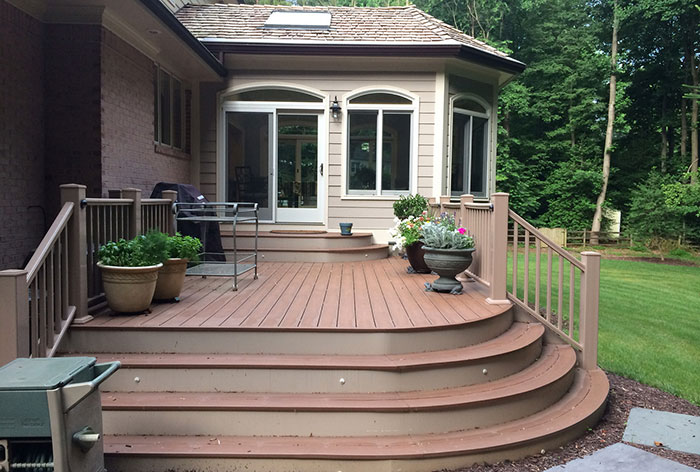Your Decking Contractor Needs to be Licensed in the State You Live
If a decking contractor shows up on your doorstep offering to do work for a price that seems too good to be true, it probably is.
Whether you seek out a decking contractor or a decking contractor comes to you, it’s imperative that you make sure they’re licensed in your state. According to the Department of Labor, Licensing, and Regulations, unlicensed contractors defraud Maryland homeowners of millions of dollars every year, oftentimes by failing to do the work that a homeowner has paid them for or doing such a bad job that more expensive repairs are required. Work with an unlicensed decking contractor and what you thought was going to be a relatively straightforward project can quickly become a nightmare.
Knowing that your contractor is licensed can give you the peace of mind that they’re an experienced professional and not a scam artist, and that you’ll be compensated for monetary losses in the event of poor workmanship or failure to complete a contract. That’s because Maryland has a Guaranty Fund to compensate homeowners for up to $20,000 in losses related to their contractor—but only if their contractor is actually licensed with the state.
In Maryland, it’s fairly straightforward for decking contractors to get licensed. Unlike in neighboring Virginia, where contract licenses are divided into different classes based on the cost of projects and the experience of the contractor, Maryland just has one type of contractor license.
To earn that license, a contractor will have to:
-
Show proof that they have at least 2 years of work experience or education in the home improvement or construction industry.
-
Take an exam covering business and industry topics.
-
Submit financial records to show good financial standing in terms of net worth, assets, credit rating, and liability.
-
Verify that any trade name they plan to use is available and then register that trade name with the Department of Assessments and Taxation.
-
Submit articles of incorporation and certificate of good standing (but only if the contractor is representing a corporation).
-
Show proof that they are fully bonded (they will need to submit a $20,000 bond if using a surety bond to meet the “financial good standing” requirements).
-
Show proof that they are fully insured with at least $50,000 in liability insurance.
-
Submit a licensing application along with an application fee to the Maryland Home Improvement Commission (MHIC).
Maryland commercial contractors must register in the city or county where they work, but their license allows them to perform work throughout the state.
Once licensed, all home improvement contractors are required to display their license number on their contracts, work vehicles, and advertisements. If you meet with a decking contractor who can’t easily provide you with their license number, this should be a red flag.
Always make sure you get your decking contractor’s license and confirm that it is theirs before signing a contract, as some unlicensed contractors may give out a fake license number or the number of a license that was revoked and hope that the homeowners don’t bother checking it. When he or she gives you their license number, you can easily confirm that the license is theirs by going to Maryland’s Department of Labor, Licensing, and Regulation website and searching for your contractor. Once you determine that your contractor is in good standing, you’ll be able to proceed with your decking project.
Make sure that you’re hiring a qualified professional and protecting your monetary investment in your decking project; never work with an unlicensed decking contractor in Maryland.


